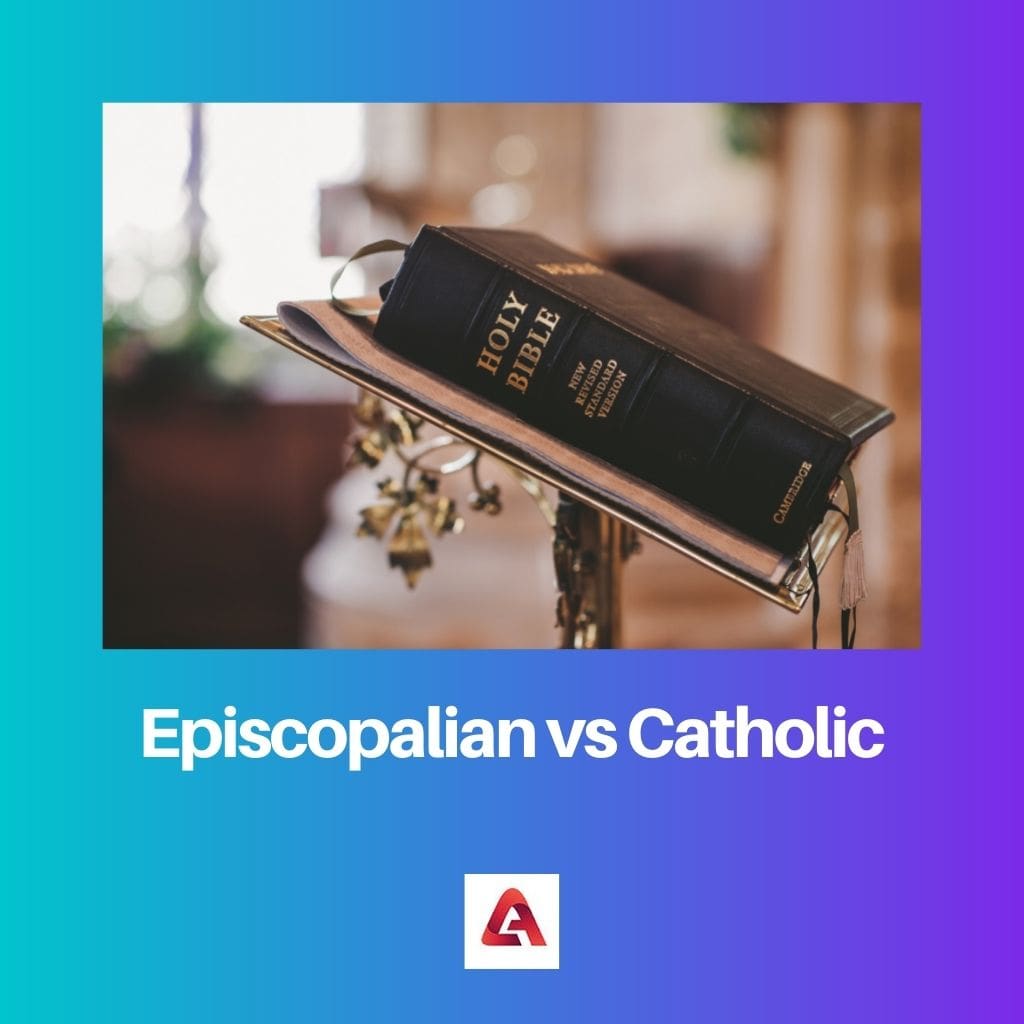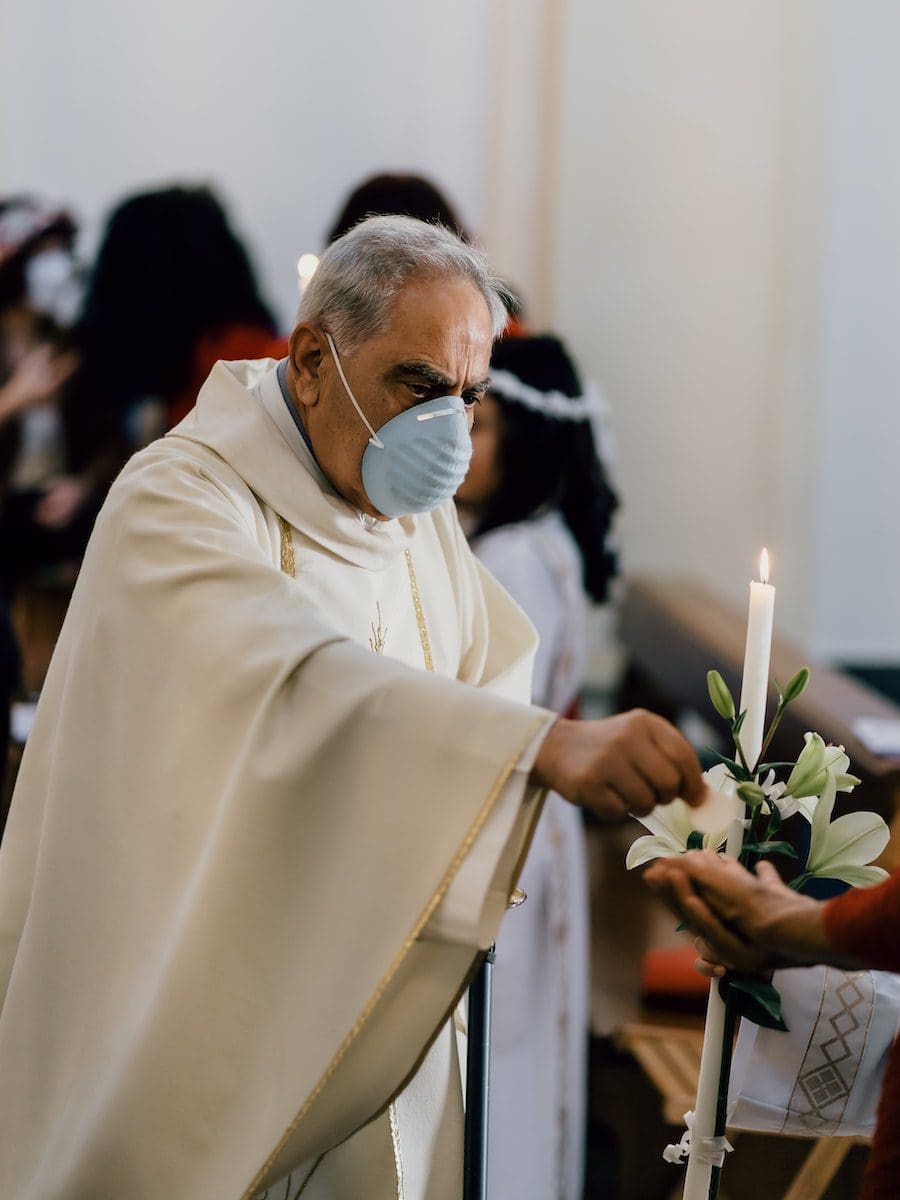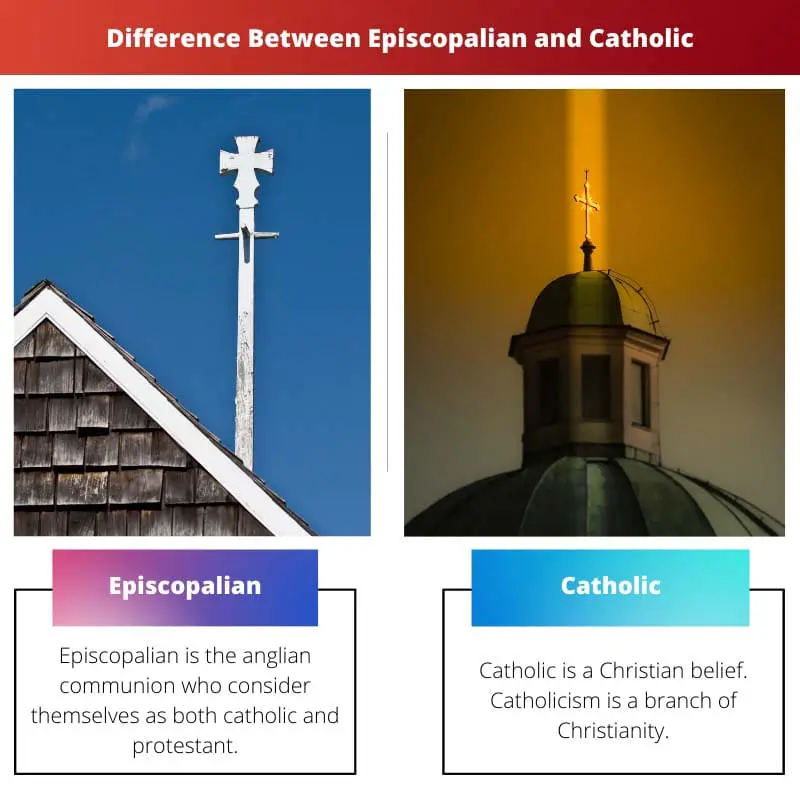Religion and beliefs have been fundamental to human society; they allow people to connect spiritually with the divine and purify their souls. Political and theological conflicts are evident in the history of humans and religion.
There is one authority in all religions that preaches the values of divinity; these people consider themselves messengers of God. Conversion from one religion into another is a basic human practice performed for years; it is entirely optional and depends on the person who wants to get converted to another religion.
Conversion of religion is done mainly due to the influence of other religions’ practices or sometimes due to political reasons. Christianity is the most practised religion in the world and thus very influential.
Christianity has different values than other religions. It has been used politically as well during the times when colonisation was in trend.
Key Takeaways
- The Episcopalian Church, also known as the Episcopal Church, is part of the Anglican Communion and shares some similarities with the Catholic Church.
- Episcopalians and Catholics adhere to apostolic succession, the sacraments, and the Nicene Creed but differ in governance, liturgical practices, and certain theological beliefs.
- The Episcopalian Church allows for more flexibility regarding women’s ordination, married clergy, and LGBTQ+ inclusion, whereas the Catholic Church maintains more conservative stances.
Episcopalian vs Catholic
Episcopalians believe in the authority of the Bible and sacraments, and have a hierarchical structure with dioceses. The Catholic Church traces believe in the sacraments, have a hierarchical structure, and have a liturgical style with a focus on the Mass and traditional elements such as incense, statues, and stained glass.

Comparison Table
| Parameters of Comparison | Episcopalian | Catholic |
|---|---|---|
| Authority | No popes, only bishops and priests. | Have centralized authority of the pope. |
| Women | Allows women to be priests. | It does not allow women to be priests. |
| Confessions | Not necessary | mandatory |
| Birth control | allows | Does not allow |
| Marriage of priest | allows | Does not allow |
What is Episcopalian?
Episcopalian is the Anglican communion that considers itself both catholic and protestant. They consider themselves catholic because they believe in understanding the old churches and call themselves protestant as they are open to reformation or renewal.
Episcopalian beliefs in baptism with water in the name of the father and of the son and holy spirit make one member of the one holy catholic apostolic church. The history of episcopalian churches can be traced back to the 16th century when the Church of England broke away from the roman catholic church due to political and theological issues.
Episcopalians have different practices and beliefs than Catholics. They do not believe in one authority of the pope.
Thus there is no pope in episcopalian churches. Episcopalians let priests and bishops marry whenever they want and to whomever they want to marry.
There is no practice of celibacy seen in episcopalians. One of the important and distinctive features of episcopalian churches is that they let people play a major and important role in decision-making.
Making confessions has always been an important ritual of Christianity, and so is in episcopalian churches. However, there is no mandatory rule in episcopalians; it is optional to make confessions. Episcopalians believe that Jesus Christ is a messiah who came as a sacrifice for the sins of human beings to put them right with god.
The founder of episcopalians is Jesus Christ st. Augustine (1st archbishop of canterbury) converted the English people in the fourth century. Episcopalians say priests are mere illustrations of what God wants them to be. They even question the authority of the pope in Christianity.
| # | Preview | Product | |
|---|---|---|---|
| 1 |

|
Walk in Love: Episcopal Beliefs & Practices | Check Price on Amazon |
| 2 |

|
The Episcopalians | Check Price on Amazon |

What is Catholic?
Catholicism is a Christian belief. Catholicism is a branch of Christianity. The catholic church is one of the largest and most important churches.
Their major belief is in one god; he is almighty, maker of earth and heaven, creator of all living and nonliving things, and creator of all visible and invisible things. Catholics consider themselves the main and original ascenders or followers of Jesus Christ, and it is believed that Catholics preserved the bible and other religious writings for centuries through monasteries and libraries.
Sacrament confessions have been an important practice of Catholics; they believe that Jesus introduces it, and the importance of confessions is also mentioned in the bible. Catholic, unlike episcopalians, have the pope’s authority over the universal church.
They believe in the idea of the bishop of Rome. And have centralized authority.
Catholic life is important for praying to saints and asking them for their guidance and protection.
They believe that saints are patrons of their routine activities. Catholic churches give communion to only those who are part of the church.
This also implies that the person has to be catholic if they want to be part of the church. Catholics do not allow birth control or marriage of priests or popes (the practice of celibacy prevails) nor allow women to be popes or priests.

Main Differences Between Episcopalian and Catholic
- Episcopalians let women be priests or bishops (sometimes), but Catholics do not allow women to be popes or priests.
- Episcopalians do not believe in the pope’s authority; thus, they have bishops, whereas Catholics have centralisation and thus have a pope.
- Episcopalians believe in the marriage of priests or bishops, but Catholics do not let popes or priests marry.
- Episcopalians allow birth control methods, but Catholics do not appreciate this practice.
- Practising sacramental confessions in episcopalians is not necessary but mandatory in Catholics.

Last Updated : 13 July, 2023

Chara Yadav holds MBA in Finance. Her goal is to simplify finance-related topics. She has worked in finance for about 25 years. She has held multiple finance and banking classes for business schools and communities. Read more at her bio page.



The historical context of the Episcopalian Church and the Catholic Church is fascinating. This comparison makes it easier to understand their distinctions.
I found the section about the Episcopalian belief in baptism particularly insightful. It’s intriguing to learn about their perspective.
The differences in authority and liturgical practices between the Episcopalian Church and the Catholic Church are quite striking.
While this article is informative, it seems to be biased against the Catholic Church. The comparison could be presented with more balance.
I agree with you, this article does seem to lean towards highlighting the Episcopalian Church’s benefits more.
The precise comparison between Episcopalian and Catholic beliefs fosters an insightful exploration into the two religious traditions.
The emphasis on the differences in authority and practices sheds light on the unique aspects of each church.
This article brilliantly delves into what defines the Episcopalian Church and Catholic Church, offering a comprehensive overview of their teachings and practices.
This article provides a very informative breakdown of the Episcopal Church and Catholic Church’s similarities and differences. It is well-written and engaging.
The article’s portrayal of the history and beliefs of the Catholic Church is articulate and thought-provoking, providing much depth to the subject.
The comparison table at the end sums up the key differences between the Episcopalian Church and the Catholic Church concisely. It’s enlightening.
The article showcases the distinct attributes of the Episcopalian Church and the Catholic Church, enriching our understanding of their fundamental principles.
The article’s descriptive analysis of the Episcopalian Church and Catholic Church offers a comprehensive and engaging examination of religious traditions.
Exploring the differences in the sacraments and governance of these churches highlights the variations in their approaches to faith.
The portrayal of the Episcopalian belief in baptism was captivating and thought-provoking.
The detailed account of the differences in beliefs between Episcopalian and Catholic traditions is very enlightening and enriching to read.
The article effectively presents the theological disparities between the Episcopalian Church and the Catholic Church, offering a compelling narrative.
The contrast between the Episcopalian Church and the Catholic Church presented in this article is educational and thought-provoking.